Featured Speakers
Tradition, Instability, and Change: History and New Directions for Theory and Research in WAC
thursday 5:30-7pm • Michigan Union rogel Ballroom (2ND FLOOR)
Mathew Gomes, Andrea Olinger, and Martha Townsend
In this collaborative plenary session, a seasoned WAC scholar and practitioner along with two new WAC scholars offer multiple perspectives on the history and future of WAC. Combining recently conducted interviews and archival data, Marty traces the origins and development of the WAC and IWAC biennial conferences from 1993 to 2016, reminding us of our past as we consider the future. Andrea argues for attention to both the dynamism of disciplinary "styles" and the ways in which language ideologies perpetuate notions that a discipline has "a style" that experts widely share and that can be mastered. Matt discusses writing program assessment, with attention to the potential that WAC assessment has for the assessment of departmental writing programs, as well as what WAC can take from new directions in the field of writing assessment. After their brief remarks, the speakers will engage with one another and the audience to imagine how WAC (the field) and IWAC (the conference) can advance by embracing many kinds of difference, especially through cross-pollination with other disciplines and research traditions.
World-Wide WAC?: Encountering Difference Across Places, Languages, and Technologies
friday 12-2pm • MICHIGAN league BALLROOM (2ND FLOOR)
Jonathan Alexander, Paula Carlino, and Jonathan Hall
Are U.S. WAC programs and curricula ready to understand and respond to the transnational and translingual identities of many of our students? How does WAC transform theoretically and pedagogically when it crosses languages and cultures? How does "writing" mean different things when considered from multi-modal and multi-mediated perspectives?
Thinking Back While Looking Forward: Lessons from IWAC 2016
saturday 12-2pm • MICHIGAN LEAGUE BALLROOM (2ND FLOOR)
Jason Dowd, Mike Palmquist, and Mya Poe
IWAC 2016 called for situating the cross-disciplinarity of WAC/WID within a pedagogy of inclusivity by asking how our pedagogy can broaden ideas of difference within and beyond the classroom to include social, cultural, linguistic, modal, and media differences, among others. In this session, the speakers discuss the ways the conference has fostered a dialogue on difference. In doing so, they reflect on what the conference presentations tell us about how WAC/WID scholarship can respond to the call for inclusivity and on how the themes emerging from IWAC 2016 might serve as a foundation for new and ongoing scholarship in disciplinary and cross-disciplinary writing.
Plenary Speakers
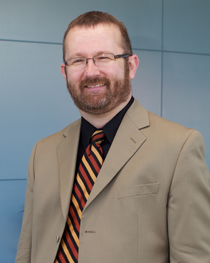 Jonathan Alexander is Professor of English and Education at the University of California, Irvine, where he is also the founding director of the Center for Excellence in Writing & Communication. The author, co-author, or editor of eleven books,his scholarly work focuses primarily on the use of emerging communications technologies in the teaching of writing and in shifting conceptions of what writing, composing, and authoring mean. Jonathan also works at the intersection of the fields of writing studies and sexuality studies, where he explores what theories of sexuality, particularly queer theory, have to teach us about literacy and literate practice in pluralistic democracies. Recent books include On Multimodality: New Media in Composition Studies (with Jacqueline Rhodes, CCC Studies in Writing & Rhetoric, 2014) and Understanding Rhetoric: A Graphic Guide to Writing (with Elizabeth Losh, Bedford/St. Martin's, 2013). Jonathan is a three-time recipient of the Ellen Nold Award for Best Articles in the field of Computers and Composition Studies, and in 2011 he received the Charles Moran Award for Distinguished Contributions to the Field of Computers and Writing. He is the general editor of College Composition and Communication.
Jonathan Alexander is Professor of English and Education at the University of California, Irvine, where he is also the founding director of the Center for Excellence in Writing & Communication. The author, co-author, or editor of eleven books,his scholarly work focuses primarily on the use of emerging communications technologies in the teaching of writing and in shifting conceptions of what writing, composing, and authoring mean. Jonathan also works at the intersection of the fields of writing studies and sexuality studies, where he explores what theories of sexuality, particularly queer theory, have to teach us about literacy and literate practice in pluralistic democracies. Recent books include On Multimodality: New Media in Composition Studies (with Jacqueline Rhodes, CCC Studies in Writing & Rhetoric, 2014) and Understanding Rhetoric: A Graphic Guide to Writing (with Elizabeth Losh, Bedford/St. Martin's, 2013). Jonathan is a three-time recipient of the Ellen Nold Award for Best Articles in the field of Computers and Composition Studies, and in 2011 he received the Charles Moran Award for Distinguished Contributions to the Field of Computers and Writing. He is the general editor of College Composition and Communication.
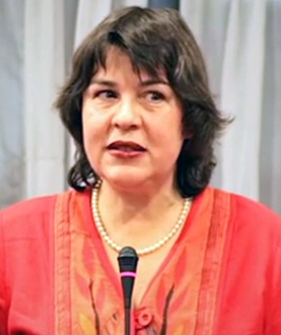
Paula Carlino, Ph.D. in Psychology, works as Research Professor with the CONICET at the University of Buenos Aires. She leads the multidisciplinary GICEOLEM (Group for an Inclusive and Quality Education by Taking Care of Reading and Writing in all Subjects). Her research interests comprise writing and reading to learn, WAC, WID, teacher development, and graduate students’ experiences regarding their thesis.
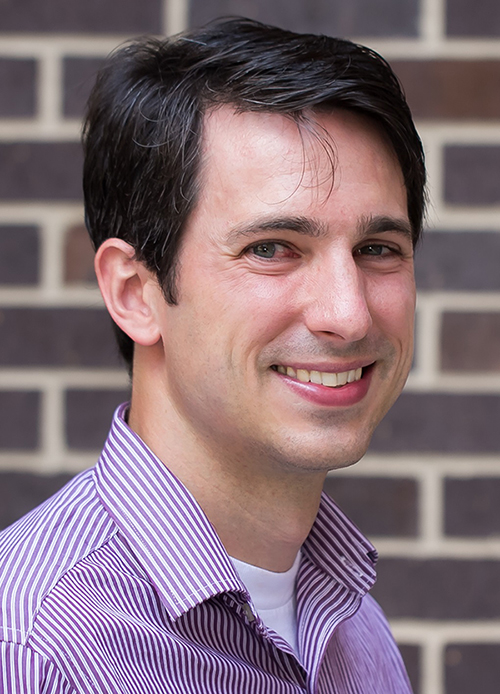 Jason Dowd is currently a postdoctoral associate in the Department of Biology at Duke University, where he is involved in interdisciplinary science education research with Dr. Julie Reynolds. He is interested in understanding how scientific writing may shed light on both students' scientific reasoning and differences in epistemic beliefs across disciplines. Prior to arriving at Duke University, Dr. Dowd earned his PhD in the Physics Department at Harvard University, where his research focused on the interpretation of assessments of student learning in the introductory physics classroom and laboratory. In addition to researching science education, Dr. Dowd has put ideas into practice as member of the teaching staff of writing-intensive courses at both Duke University and Harvard University. Building on his roots in experimental laboratory physics and physics education research, he is always looking for opportunities to bridge disciplinary boundaries and participate in diverse academic communities.
Jason Dowd is currently a postdoctoral associate in the Department of Biology at Duke University, where he is involved in interdisciplinary science education research with Dr. Julie Reynolds. He is interested in understanding how scientific writing may shed light on both students' scientific reasoning and differences in epistemic beliefs across disciplines. Prior to arriving at Duke University, Dr. Dowd earned his PhD in the Physics Department at Harvard University, where his research focused on the interpretation of assessments of student learning in the introductory physics classroom and laboratory. In addition to researching science education, Dr. Dowd has put ideas into practice as member of the teaching staff of writing-intensive courses at both Duke University and Harvard University. Building on his roots in experimental laboratory physics and physics education research, he is always looking for opportunities to bridge disciplinary boundaries and participate in diverse academic communities.
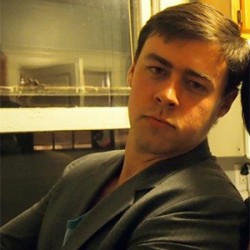 Mathew Gomes is a doctoral candidate Michigan State University, and will graduate in Summer 2016. His research interests include writing program assessment and the rhetorics of institutional practice. Currently, he is involved in research studying students' perceptions of their first-year writing placements. He is also helping coordinate the assessment of an interdisciplinary writing studio, which is populated by students enrolled in an undergraduate, residential college focused on the history, philosophy, and sociology of science.
Mathew Gomes is a doctoral candidate Michigan State University, and will graduate in Summer 2016. His research interests include writing program assessment and the rhetorics of institutional practice. Currently, he is involved in research studying students' perceptions of their first-year writing placements. He is also helping coordinate the assessment of an interdisciplinary writing studio, which is populated by students enrolled in an undergraduate, residential college focused on the history, philosophy, and sociology of science.
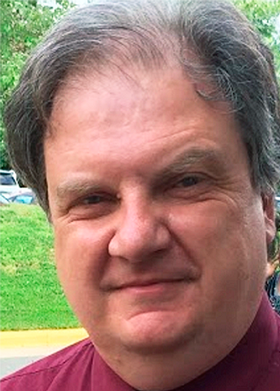 Jonathan Hall is WAC Coordinator, Writing Center Director, and Associate Professor of English at York College, City University of New York. Working with a linguistically and culturally diverse student body has led him to explore the role of WAC in an era of "the multilingual majority." Recent publications include "Language Background and the College Writing Course," "Multilinguality is the Mainstream," "Multilinguality Across the Curriculum," and "Lessons for WAC/WID from Language Learning Research: Multicompetence, Register Acquisition, and the College Writing Student."
Jonathan Hall is WAC Coordinator, Writing Center Director, and Associate Professor of English at York College, City University of New York. Working with a linguistically and culturally diverse student body has led him to explore the role of WAC in an era of "the multilingual majority." Recent publications include "Language Background and the College Writing Course," "Multilinguality is the Mainstream," "Multilinguality Across the Curriculum," and "Lessons for WAC/WID from Language Learning Research: Multicompetence, Register Acquisition, and the College Writing Student."
 Andrea Olinger is an assistant professor of English at the University of Louisville. Recent publications include "On the instability of disciplinary style: Common and conflicting metaphors and practices in text, talk, and gesture" in Research in the Teaching of English (2014). She has also published in Linguistics and Education, Writing & Pedagogy, and Teaching English in the Two-Year College.
Andrea Olinger is an assistant professor of English at the University of Louisville. Recent publications include "On the instability of disciplinary style: Common and conflicting metaphors and practices in text, talk, and gesture" in Research in the Teaching of English (2014). She has also published in Linguistics and Education, Writing & Pedagogy, and Teaching English in the Two-Year College.
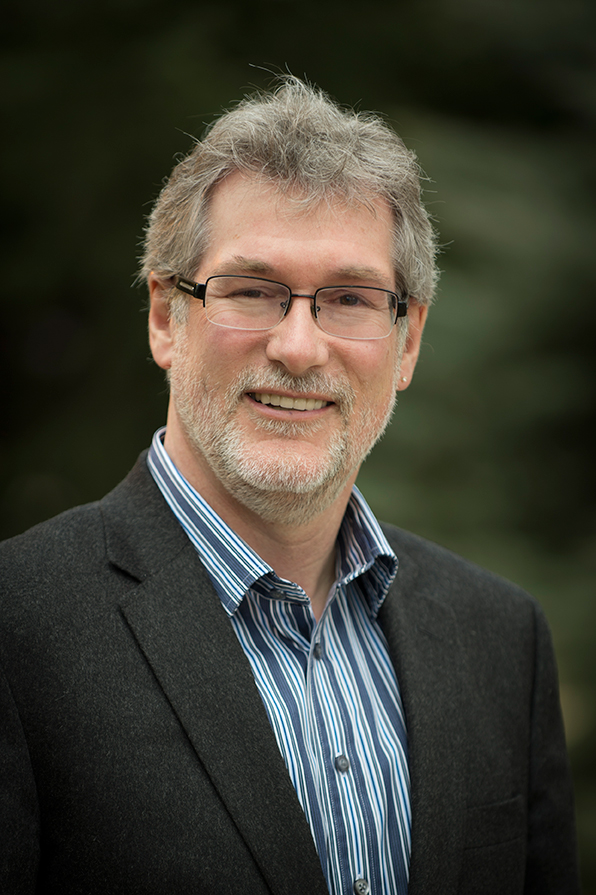 Mike Palmquist is Associate Provost for Instructional Innovation, Professor of English, and University Distinguished Teaching Scholar at Colorado State University, where he supports university-wide efforts to enhance learning and teaching in face-to-face, blended, and distance courses. His scholarly interests include writing across the curriculum, the effects of computer and network technologies on writing instruction, and new approaches to scholarly publishing. His work has appeared in journals including College English, College Composition and Communication, ADE Bulletin, Computers and Composition, Written Communication, Writing Program Administration, Marketing Education Review, IEEE Transactions on Professional Communication, Kairos, and Social Forces, as well as in edited collections.
Mike Palmquist is Associate Provost for Instructional Innovation, Professor of English, and University Distinguished Teaching Scholar at Colorado State University, where he supports university-wide efforts to enhance learning and teaching in face-to-face, blended, and distance courses. His scholarly interests include writing across the curriculum, the effects of computer and network technologies on writing instruction, and new approaches to scholarly publishing. His work has appeared in journals including College English, College Composition and Communication, ADE Bulletin, Computers and Composition, Written Communication, Writing Program Administration, Marketing Education Review, IEEE Transactions on Professional Communication, Kairos, and Social Forces, as well as in edited collections.
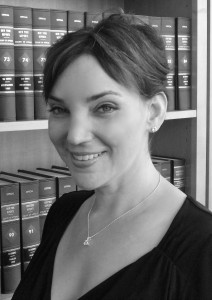 Mya Poe's research interest is in how people become better writers and what we mean by "better" writing. She is especially interested in what the answers to those questions mean for culturally and linguistically diverse students. She spent the first 10 years of her career at MIT as Director of Technical Communication where she worked with faculty across the Institute to develop one of the leading WAC programs in the U.S. Currently, as a faculty member in the Northeastern University English department she teaches graduate and undergraduate students interested in Writing Studies. She also teaches scientific writing and interdisciplinary writing in the Northeastern Writing Program.
Mya Poe's research interest is in how people become better writers and what we mean by "better" writing. She is especially interested in what the answers to those questions mean for culturally and linguistically diverse students. She spent the first 10 years of her career at MIT as Director of Technical Communication where she worked with faculty across the Institute to develop one of the leading WAC programs in the U.S. Currently, as a faculty member in the Northeastern University English department she teaches graduate and undergraduate students interested in Writing Studies. She also teaches scientific writing and interdisciplinary writing in the Northeastern Writing Program.
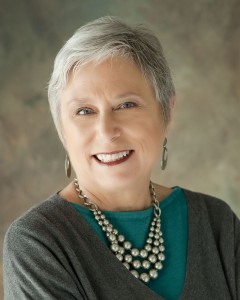 Martha Townsend is Professor Emerita of English at the University of Missouri and former director of its internationally renowned Campus Writing Program. Townsend's publications have played a central role in the conceptualization and development of writing-across-the-curriculum programs in the United States and abroad. She is a former literacy consultant to the Ford Foundation.
Martha Townsend is Professor Emerita of English at the University of Missouri and former director of its internationally renowned Campus Writing Program. Townsend's publications have played a central role in the conceptualization and development of writing-across-the-curriculum programs in the United States and abroad. She is a former literacy consultant to the Ford Foundation.


